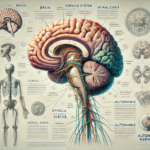Meditation offers numerous physical and mental health benefits. By incorporating daily meditation into your routine, you can reduce stress, improve focus, and foster a sense of well-being. In this article, we will explore the top benefits of meditation, supported by research, and how even a few minutes a day can make a significant difference. From mental clarity to emotional balance, discover why daily meditation is an essential practice for anyone seeking a healthier, more centered lifestyle.
Physical Benefits of Meditation
Meditation offers a wealth of benefits for the body. By practicing regularly, you can experience significant improvements in your physical well-being. This section explores how meditation helps reduce stress and anxiety, lowers blood pressure, and boosts immunity. Let’s dive into the transformative effects of meditation on the body.
Reduces Stress and Anxiety
Stress and anxiety are common challenges in today’s fast-paced world. Meditation provides a natural way to manage these feelings. Through calming techniques, it helps to lower cortisol levels, the hormone linked to stress. As you meditate, the body relaxes, and tension melts away.
Meditation promotes the release of endorphins, the body’s natural mood elevators. This results in a sense of well-being and calmness. Regular practice can lead to a reduction in the symptoms of anxiety disorders. By dedicating just a few minutes each day, the mind and body learn to manage stress more effectively.
Using breathing exercises, meditation teaches you to focus on the present moment. This mindfulness approach helps to quiet the mind. When thoughts of worry arise, meditation provides the tools to address them without becoming overwhelmed. Over time, it becomes easier to maintain a balanced and peaceful state of mind.
Lowers Blood Pressure
High blood pressure is a major health concern, but meditation can naturally help lower it. By inducing a state of relaxation, meditation reduces the strain on the heart. As the heart rate decreases, blood pressure is more likely to stabilize.
Regular meditation practice supports a healthier cardiovascular system. It encourages the dilation of blood vessels, promoting smoother blood flow. Studies show that those who meditate regularly often experience significant decreases in both systolic and diastolic blood pressure.
Incorporating meditation into daily life can complement other heart-healthy practices. It serves as a valuable tool for those looking to manage hypertension without solely relying on medication. With continued practice, the positive effects on blood pressure can lead to a longer, healthier life.
Boosts Immunity
A strong immune system is essential for overall health, and meditation can play a crucial role in boosting it. Stress reduction, a key benefit of meditation, directly impacts immune function. Less stress means fewer hormonal imbalances that can weaken immunity.
Meditation fosters a state of relaxation that allows the body to repair and rejuvenate. During meditation, the production of antibodies increases, enhancing the body’s ability to fight off illness. The calming nature of meditation also leads to improved sleep, further supporting immune health.
Consistent meditative practice has been linked to increased activity in the regions of the brain responsible for immune response. As a result, those who meditate regularly are often better equipped to fend off infections and diseases. Meditation becomes an integral part of maintaining a robust and vibrant immune system.
Mental Benefits of Meditation
Meditation is not just about physical well-being; it also profoundly impacts the mind. This section delves into how meditation enhances focus and concentration, improves sleep quality, and encourages mindfulness. Discover the mental clarity and peace that come from a regular meditation practice.
Enhances Focus and Concentration
In a world full of distractions, maintaining focus can be a challenge. Meditation sharpens the mind, enhancing both focus and concentration. By training your attention through meditation, you develop the ability to remain present.
Mindfulness meditation, in particular, is effective in improving concentration. It requires you to focus on a single point of reference, such as your breath or a mantra. This practice helps to strengthen your attention span over time.
Studies indicate that regular meditation practice can lead to improved cognitive performance. Tasks that require sustained attention become easier, and your ability to process information quickly improves. Meditation offers a mental edge in both personal and professional settings.
Improves Sleep Quality
Good sleep is vital for mental and physical health. Meditation aids in achieving deeper and more restful sleep. By calming the mind, it helps reduce the racing thoughts that often disrupt sleep.
Meditation encourages a relaxation response, lowering heart rate and promoting peace. This physiological change makes it easier to fall asleep and stay asleep. Techniques such as guided meditation and body scan are particularly beneficial for sleep improvement.
With consistent practice, meditation helps establish a routine that prepares the body for rest. The quality of sleep improves as the mind learns to unwind. Better sleep leads to improved mood, energy levels, and overall well-being.
Encourages Mindfulness
Mindfulness is the practice of being fully present in the moment. Meditation cultivates mindfulness by teaching you to observe thoughts without judgement. This heightened awareness extends beyond meditation sessions into daily life.
Living mindfully means appreciating each moment as it comes. Meditation helps break the cycle of automatic reactions and encourages intentional living. As mindfulness grows, you become more attuned to your thoughts, emotions, and surroundings.
Practicing mindfulness through meditation reduces stress and enhances emotional regulation. It allows for a deeper connection with experiences, leading to a more fulfilling life. As mindfulness becomes a natural part of your routine, it enriches every aspect of living.
Emotional Benefits of Meditation
Emotionally, meditation offers profound benefits that contribute to a healthier mindset. This section explores how meditation promotes emotional stability, increases self-awareness, and builds resilience against negative emotions. Embrace the emotional balance that meditation provides.
Promotes Emotional Stability
Emotional stability is crucial for navigating life’s challenges. Meditation helps to achieve this by calming the mind and regulating emotions. Regular practice enables you to respond to situations with clarity and calmness.
The process of meditation encourages emotional balance by creating a space for reflection. It allows you to observe your feelings without becoming overwhelmed by them. This objective perspective helps in managing emotions more effectively.
With time, meditation strengthens emotional resilience, making it easier to handle stress and adversity. It fosters a sense of inner peace that supports stable emotions. As a result, you experience greater emotional freedom and well-being.
Increases Self-Awareness
Self-awareness is the foundation of personal growth. Meditation enhances self-awareness by encouraging introspection. Through meditation, you gain insights into your thoughts, feelings, and behaviors.
This practice allows you to explore your inner world without distraction. As self-awareness increases, you become more conscious of your actions and their impact. This understanding fosters personal development and transformation.
Meditation supports self-awareness by allowing you to connect with your true self. It guides you toward recognizing patterns that may hold you back. With greater self-awareness, you can make positive changes and cultivate a more authentic life.
Builds Resilience Against Negative Emotions
Negative emotions are a natural part of life, but meditation helps build resilience against them. By fostering a positive mindset, meditation reduces the impact of negative emotions.
The practice of meditation teaches you to acknowledge and accept feelings without judgment. This non-reactive approach empowers you to handle emotions constructively. Over time, meditation helps to strengthen your ability to bounce back from setbacks.
Through meditation, you learn to shift focus from negativity to positivity. This mental shift promotes optimism and hopefulness. As resilience grows, you become better equipped to face life’s challenges with courage and strength.
Conclusion
Meditation has many proven physical, mental, and emotional benefits, making it a powerful daily habit for anyone aiming to improve their overall well-being. By dedicating just a few minutes a day, you can experience a transformative impact on your quality of life, gaining both tranquility and clarity.
FAQ
What are the main benefits of meditation?
Meditation provides numerous benefits, including stress reduction, enhanced emotional health, and improved self-awareness. It can also lead to better focus, increased attention span, and a greater sense of calm and relaxation.
How long should I meditate daily to see benefits?
Starting with just 10 to 20 minutes of meditation daily can lead to noticeable benefits. Consistency is key, and gradually increasing the duration can enhance the positive effects over time.
Can meditation help with anxiety?
Yes, meditation can significantly help in reducing anxiety. By promoting relaxation and mindfulness, it helps manage anxious thoughts and fosters a sense of peace and balance.
Does meditation improve sleep quality?
Meditation can improve sleep quality by helping you relax and clear your mind before bedtime. Practicing meditation regularly can also reduce insomnia and sleep disturbances, leading to more restful sleep.
How does meditation boost focus and concentration?
Meditation enhances focus and concentration by training the mind to stay present. Regular practice strengthens your ability to ignore distractions and improve cognitive functions like attention and memory.
Can meditation make me more self-aware?
Meditation fosters self-awareness by encouraging introspection and mindfulness. It helps you understand your thoughts and emotions better, leading to increased self-knowledge and personal growth.



